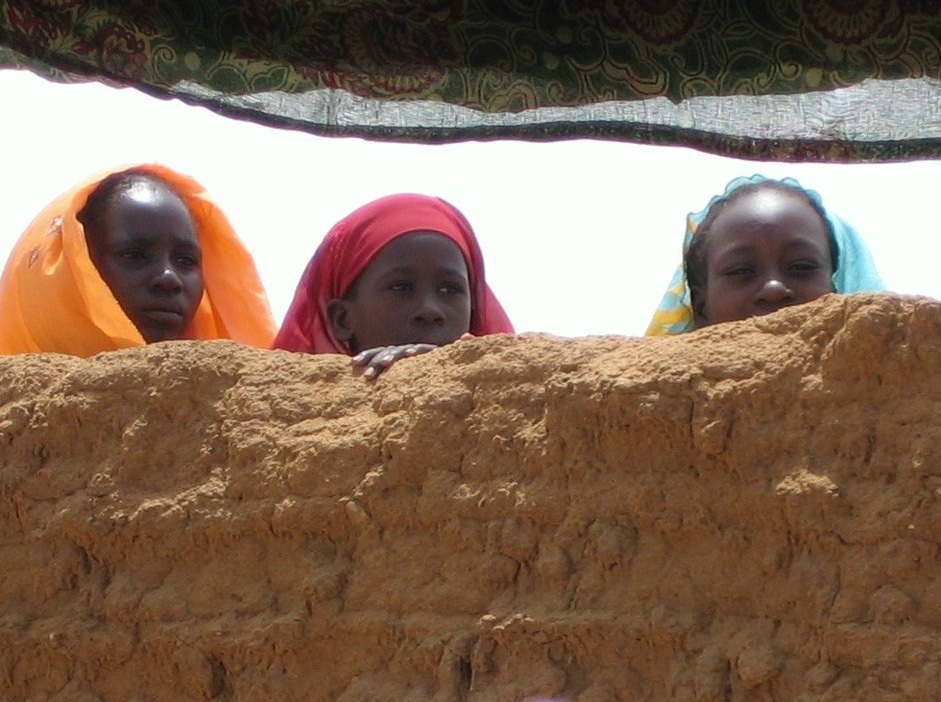JUBA, SUDAN - One of Alfred Lado's earliest memories is from Jan. 1, 1956. He can be that specific because it was the date that Sudan got its independence from British colonial rule. A child at the time, he did not know the significance of the event, but on that day his brother told him he would be going to school for the first time.
The prospect of education excited Lado and continues to 55 years later as he sits in the library at Juba University, in the capital of southern Sudan, on the eve of another historic moment. On Sunday, he and millions of other southern Sudanese will vote on whether they want to become an independent nation, after decades of struggle and a bloody civil war.
The war between rebels in the primarily Christian and animist south against successive governments ruling from Khartoum in the predominantly Arab and Muslim north lasted almost the entire span of Lado's life.
"All that time we never knew that some day like this would come," he said.
Lado grew up in a mud hut in the village of Lainya, about 60 miles from Juba, unaware that it was one of the most neglected regions of the newly independent Sudan.
Throughout colonialism, the British ruled Sudan from the north and administered the territory as if it were two different countries. Beginning in 1922, they required travel permits for anyone who wished to cross between north and south.
But the swampy terrain made it difficult for the British to reach the southern part of the country, so they outsourced their responsibilities as a governing power to missionaries tasked with spreading Christianity and enforcing the English language.
Many children like Lado and his brother received a church education, and the missionaries also provided some medical care. But the south was deeply disadvantaged and remained so after the British left. Even today, Lado said his home village has no access to electricity or clean water.
By the time of Sudanese independence, the cultural differences between north and south had become entrenched.
Lado remembers a blissful childhood despite these problems until 1961, when he joined fellow students and the majority of southerners in a strike.
"The reason was the Arabs were saying we could not pray on Sunday and we had to pray on Friday instead," he said.
Gen. Ibrahim Abboud, who took control of the post-independence government in a 1958 military coup, had begun what would be a decades-long effort of successive governments in Khartoum to forge the identity of Sudan as an Arabic and Islamic nation.
"In 1962, the majority of us left for Uganda," Lado said of his classmates, who joined the millions of southerners who have left Sudan since independence.
Lado continued his schooling in Uganda and by the time his education was complete, the Sudanese government and southern rebels had signed a peace agreement, which enshrined freedom of religion for all Sudanese and promised southerners a measure of autonomy.
Lado returned to his homeland and eventually started work at Juba University as an administrator.
"It was a skeleton," he remembered, "a secondary school that had been given to us and we have just been patching it up piece by piece until today."
With peace came an influx of Western money, and Lado bought hundreds of textbooks to create southern Sudan's first library.
But in September 1983, fighting resumed after the government abrogated the agreement by imposing Islamic sharia law throughout the country.
The war continued for 22 years, and the foreign funding dried up.
"The Westerners all said they didn't want to put money into a war zone," said Lado, surveying his present-day library collection, still filled with books written before 1983.
An estimated two million, primarily southern, lives were lost in the violence. But even as most civilians fled, Lado remained right where he is today, at the Juba University library.
In 1989, after the present-day regime of President Omar al-Bashir took power in a military coup, the assault of southern Sudan intensified and the university campus was relocated to Khartoum.
"Our librarian, who was British, he ran away also," said Lado, who subsequently took over responsibility for the library. There were no university students in Juba, but Lado and the few of his colleagues who remained, ran courses for southerners who were working in government ministries. "We opened the library to them, and even the army came to read."
Asked why he got up each morning to open a library in a war zone, Lado seemed surprised by the question. "Well, people needed information. They wanted to find out about the history of their country," he said.
Finally, in 2005, peace returned with the signing of an agreement that established a power-sharing government in Khartoum and gave southerners semi-autonomy with their own government.
And following a six-year interim, southerners were promised a referendum in which they could vote to remain unified with the north or gain independent statehood.
Last month, Lado registered to participate in the referendum, and Sunday he will cast his ballot. He said he will be "voting for freedom," something he never imagined he would get to do.
"The government was very powerful and it was in control everywhere," he said. "All we hoped was that one day we would come out of this."













